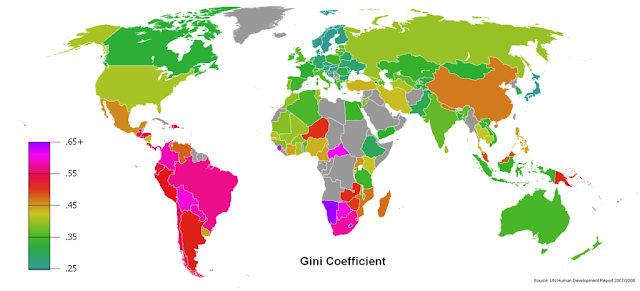Open Economics has a piece, discussing the power gap, based on Lawrence Mishel's paper, Education is Not the Cure for High Unemployment or Income Inequality. which examines how education will not be the answer to the unemployment problem (China has large numbers of college grads who are unemployed). One quote from the paper:
and the author concludes (emphasis mine):Together, these trends suggest that the forthcoming supply of college graduates is meeting the growing demands of employers for such workers. Moreover, these trends suggest that a rapid expansion of the supply of college graduates will cause the wages of college graduates to decline, assuming that the productivity–pay gap continues unabated. We can expect the wages of young college graduates and male college graduates (whose wages are currently in decline) to experience the steepest declines.That may or may not be a desirable outcome, but it is definitely not the outcome that most people would expect given the claims that graduating many more people from college will prevent a rise of inequality or reduce inequality.
The challenge, in my view, is to provide a much broader path to prosperity, one that encompasses those at every education level. The nation’s productivity has grown a great deal in the last 30 years, up 80% from 1979 to 2009, and such productivity growth or better can be expected in the future. Yet with all the income generated in the past and expected in the future it is difficult to explain why more people have not seen rapid income growth. It is not the economy that has limited or will limit strong income growth, but rather the economic policies pursued and the distribution of economic and political power that are the limiting factor.
 |
| via Wikimedia Commons |
And now we have allowed the schools, instead of providing a free service to citizens, to flip that and require that citizens begin to pay the schools for additional training after 12 long years. That is a significant change and an ominous one.
Meanwhile, my post on one company's hiring policies shows a way companies can make entry paths for a wider variety of employees. Zoho finds these employees do well.
Related articles
No comments:
Post a Comment